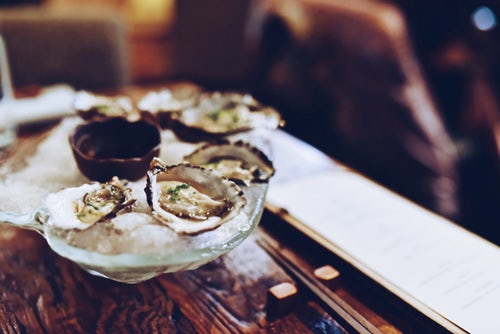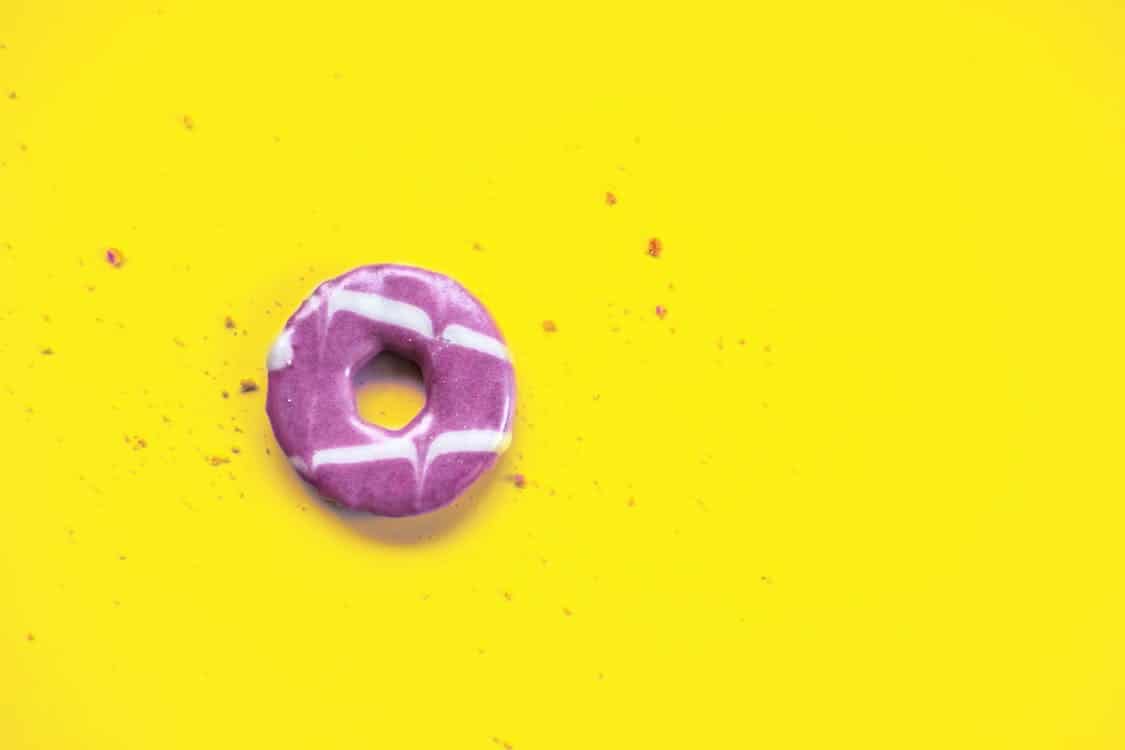You’ve probably heard it’s important to eat foods containing calcium for healthy bones, foods containing iron to keep your energy levels up and foods containing vitamin C to help your immune system function but have you ever wondered just how many vitamins and minerals your body actually needs to stay alive let alone function optimally?
The answer is more than 30.
There are over 30 vitamins, minerals and other compounds we know the human body needs in order to carry out all the necessary reactions and functions going on behind the scenes 24/7 to sustain your life.
These are 30 substances your body cannot make and therefore 30 substances you must get from the foods you eat (plus we also know there’s a whole swathe of others we can survive without but which are great for us if we do eat them).
While most people are familiar with the macros and often a few of the vitamins and minerals (micros) there are many more that get overlooked which is why I wanted to share with you a small series of blogs on some of these lesser known but of no lesser importance vitamins and minerals beginning with today’s post.
In today’s post the humble and often completely overlooked essential mineral copper is taking centre stage and I am going to briefly cover why you need it, signs and symptoms you may be deficient, good food sources and how much to eat. So, if you’re curious to know the answers read on because here they are.
Copper: Why Do I Need It?

Copper is a trace element required by your body in small amounts in order to carry out a number of vital processes including:
- The healthy functioning of your metabolism and energy production largely because is a component of a number of major enzymes1 (for all the nerds out there some of the metalloenzymes copper is a part of include diamine oxidase, monoamine oxidase, lysyl oxidase, ferroxidases, cytochrome c oxidase, dopamine beta monoxygenase, alpha-amidating monooxygenase and cupro/zinc superoxide dismutase)
- Helps with iron absorption
- Acts as an antioxidant
- Healthy brain function (including neuropeptide synthesis)
- Immune system function
8 Signs and Symptoms That You May Be Deficient

Despite the fact that it is estimated the body of a healthy adult only contains about 80mg-100mg of copper2,3 copper is still so important that a deficiency can cause major problems including:
- Anaemia
- low body temperature
- Osteoporosis and bone fractures
- loss of skin pigmentation
- thyroid problems
- an increased risk of infection
- depigmentation of the hair and skin
- altered cholesterol metabolism4,5
Good Food Sources of Copper
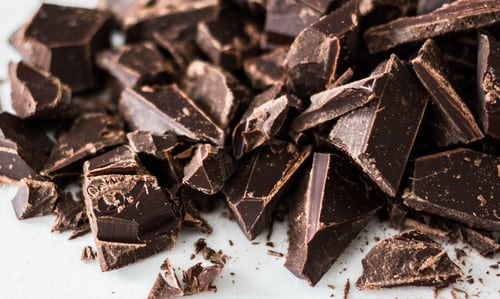
- oysters and other shellfish
- organ meats, such as kidneys and liver
- nuts, such as cashews and almonds
- sunflower seeds, sesame seeds and tahini
- cocoa
- whole grains and fortified cereals
- dried fruits (most fruits and vegetables are low in copper but when dried the minerals become more concentrated)
- spirulina
- black pepper
How Much Do I Need to Eat?
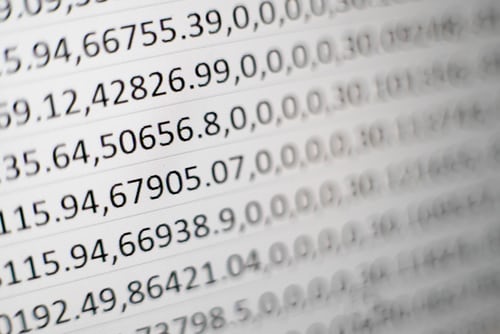
The Australian Nutrient Reference values quote an adequate intake (AI) of 1.2mg and 1.7mg/day of copper for women and men respectively over the age of 197.
To give you an idea of how this translates into food 100g (roughly 6 medium) oysters gives you about 7.6mg copper (which is around 4x the AI) and 100g of dark chocolate (70-85% cocoa) provides you with almost double the AI for copper.
Should I Just Take A Supplement?
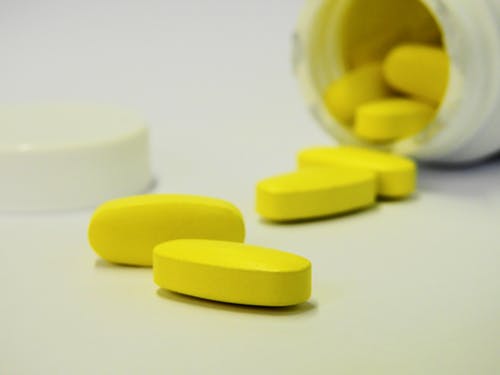
Although copper supplements are available in the context of an adequate and varied diet containing some of the foods mentioned above it is unlikely you would need to consider taking them.
As you can see from the examples I gave above you only need to eat quite a small amount of these foods high in copper to more than meet your daily needs. On the other hand if you’re not eating a lot of these foods which are good sources of copper you would need to eat more for example 1 cup of sliced banana would give you about 0.1mg of copper in which case you’d have to eat about 12-17 cups of sliced banana if this was your sole source of copper for the day!
We know nutrients in foods work together and not in isolation so that the effect of eating wholefoods versus taking a supplement are completely different including the fact that minerals are often absorbed more efficiently in your digestive tract when you’re eating foods rather than supplements.
Furthermore, if you are low in copper you are more than likely also low in other nutrients and to identify and rectify why this is so requires looking at your diet, thoughts and feelings around foods as a whole more than taking a single supplement.
Interestingly a high intake of zinc, iron, cadmium or vitamin C can reduce the absorption of copper in your intestine6 another reason to go with foods first as it’s much less likely to take too much of any one micronutrient when you’re eating wholefoods versus swallowing pills.
Take Home Points

There are many micronutrients and other compounds your body needs in order for the biological functions that keep you alive to continue to flow smoothly and for you to continue being able to do the things you enjoy.
After reading this you now understand a little deeper and a little more fully the role of just one of these; copper.
It is my intention that this brief snippet of insight grant you a moment of greater appreciation for all the amazing things this one little mineral allows you to do and the quite frankly dire consequences of not eating enough.
It truly is amazing, and it blows my mind when I take things down to this level and realise just how diligently a human body works day to day and moment to moment if you simply give it the right tools to do so.
A healthy diet is never about excessively focusing on one nutrient or micronutrient at the expense of others because we may not yet understand everything there is to know about human nutrition and health but we do know enough to know health is not found in either of the extremes and this is no different when it comes to the micronutrients with both high and low dietary intakes being harmful.
Health is about the overall big picture and eating an adequate and varied diet will help ensure you are supplying your body with the micronutrients necessary for health, including copper. If you’re unsure or have nutrition related questions, feel welcome to pop them below or go to my contact page and give me a call.
With All My Heart I Hope You Found This Information Useful & Inspiring.

Become Great. Live Geat.
Bonnie.
Reference
- Harris ED. Copper homeostasis: The role of cellular transporters. Nutr Rev. 2001;59:281-5.
- Lingamaneni Prashanth, Kiran Kumar Kattapagari1, Ravi Teja Chitturi1, Venkat Ramana Reddy Baddam1, Lingamaneni Krishna Prasa. A review on role of essential trace elements in health and disease. Nov 15, 2019, 122.149.91.54.
- Cartwright, G.E., and M.M. Wintrobe. 1964. Copper metabolism in normal subjects. Am. J. Clin. Nutr. 14:224-232
- Klevay LM, Inman I, Johnson LK, Lawler M, Mahlko JR, Mine DB et al. Increased cholesterol in plasma in a young man during experimental copper depletion. Metab: Clin. Exp. 1984. 33:(12); 1112-1118.
- Reiser S, Powell A, Yang CY, Canary J. Effect of copper intake on blood cholesterol and its lipoprotein distribution in men. Nutr. Rep. Int. 1987. 36; 641-649.
- Diet and Health: Implications for Reducing Chronic Disease Risk. Committee on Diet and Health, National Research Council. Accessed 16/11/2019. Washington D.C. 1989. Available online in PDF from National Academies Press at: http://www.nap.edu/catalog/1222.html
- Nutrient Reference Values for Australia and New Zealand. Copper. Accessed 16/11/2019. Page updated 9/04/2014. Available online: https://www.nrv.gov.au/nutrients/copper
